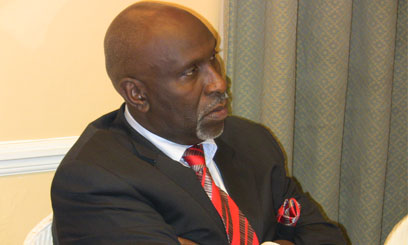 NAIROBI, Kenya, Aug 26 – The Commission for the Implementation of the Constitution (CIC) has maintained its resolve to pursue a court case challenging the legality of two public finance Bills that were rushed through Parliament on Friday morning.
NAIROBI, Kenya, Aug 26 – The Commission for the Implementation of the Constitution (CIC) has maintained its resolve to pursue a court case challenging the legality of two public finance Bills that were rushed through Parliament on Friday morning.
Speaking to journalists in Nairobi on Friday, CIC Chairman Charles Nyachae said the Contingencies Fund and County Emergency Funds Bill plus the National Government Loans Guarantee Bill were unconstitutional and might end up being repealed to confine to the principles of the Constitution.
On Thursday the CIC secured orders stopping passage of the two Bills, but MPs went ahead and passed them on Friday after hastily debating them.
The Commission argues that the government has flouted provisions of the Constitution that all Bills be approved by the CIC and the Commission on Revenue Allocation.
“And the consequence, in all probability, is that we will end up with laws whose provisions are likely to be declared unconstitutional and therefore struck out or have to be amended. And then we will be back to where we started,” he argued.
He further reiterated his concerns with the manner in which Parliament had been rushing through the implementation process noting that the quality of the Bills could be jeopardised.
Parliament on Thursday passed six Bills in a span of two hours before passing others on Friday morning. MPs have also made significant changes to Bills like the Elections Bill and the Independent Ethics and Anti Corruption Bill.
The Legislators decided to drop a provision in the Elections Bill that was aimed at ensuring that the constitutional requirement on gender was met.
This provision proposed that any deficits be met through direct nominations in the party lists, as provided for under Article 90 of the Constitution. The MPs argued that political parties should not be forced to nominate a woman candidate.
MPs also decided to scrap the Directors’ positions in the yet to be constituted Independent Ethics and Anti Corruption Commission while at the same time taking away its prosecutorial powers, as had been envisaged by the Bill.
“We cannot read the requirement of a deadline in isolation; you have a deadline, yes, but you have a deadline to enact laws that are in compliance with the provisions of the Constitution and that have undergone the process set out in the law,” argued Mr Nyachae.
The CIC further said that it was too late to give further guidance on the implementation process of Bills that had a one year timeline.
Mr Nyachae instead said that it was up to the Judiciary to correct any flaws that were raised as a result of the rushed process, if the President assented to the Bills.
“It’s important for Kenyans to understand that as long as our Constitution stands for whatever it stands for, then we still safe. The speed at which these Bills are being processed and taken to the President for assent gives the CIC very little opportunity to intervene,” he said.
He also argued that it didn’t matter whether or not Parliament passed the two public finance Bills as long as there was a pending court case that could declare them unconstitutional.
Mr Nyachae further observed that the Cabinet had in the past been forced to withdraw the Judicial Services Bill and the Vetting of Judges and Magistrates Bill when they were first tabled in parliament, because the CIC did not oversee their implementation. At the time, the CIC had not yet been constituted.
“I know Parliament is independent and makes decisions based on its own rules. But at the end of the day all organs are subject to the Constitution and that is why a Court will pronounce a law unconstitutional if it finds it unconstitutional, whether or not Parliament has passed it,” he observed.














































